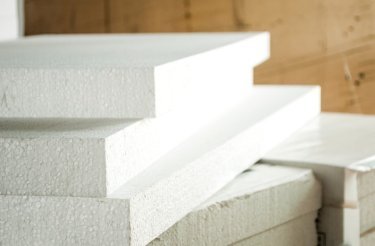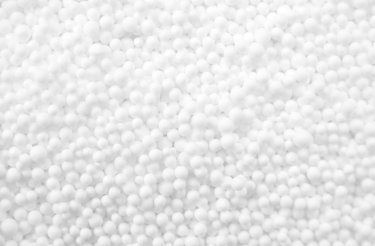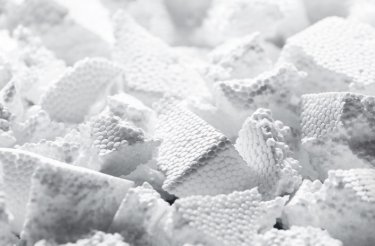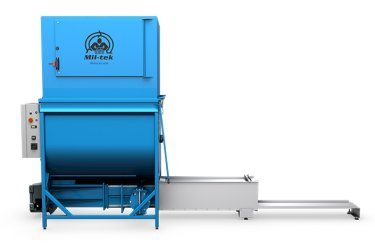
Yes – Expanded Polystyrene is Recyclable!
Check out this guide to learn how to recycle expanded polystyrene while keeping both trash management costs and environmental impact in mind.
Is expanded polystyrene recyclable?
Expanded polystyrene, often referred to as Styrofoam, is commonly used as an insulating material in roofing, wall systems, and building foundations to maintain thermal efficiency. Despite being lightweight, EPS foam is strong and durable, available in multiple compressive strengths to resist backfill pressure and support varying weight loads. Its closed-cell composition also provides excellent moisture resistance, limiting water absorption and offering low vapor permeability, which helps protect structures from potential water damage.

Advantages and manufacturing
EPS foam offers a range of advantages as an insulation material, making it a popular choice for homeowners and builders alike. Key benefits include:
- Energy efficiency
- High thermal resistance
- Long-lasting durability
- Fully measurable energy saving
- Lower costs
- Contribution to a cleaner environment, as it does not promote bacterial growth
- Chemical inertness, enhancing biocompatibility
The production process generally involves two main steps. First, pre-puffed beads are fused into large blocks through steaming. Next, these blocks are stored for a set period to stabilize before being cut into the desired sizes and shapes.

Environmental concerns
In recent years, awareness of sustainability has grown significantly, highlighting the need to evaluate the environmental impact of everyday processes and activities. Many of these actions are so routine that we rarely think about them in ecological terms. Yet, raw materials as, fuels, water, and energy required to produce the products we use daily can quickly drain natural resources and harm the planet.
To reduce this impact, materials should be as eco-friendly as possible – free from highly toxic substances – and either durable enough for repeated use or easily recyclable to minimize emissions at the end of their life cycle.
Expanded polystyrene fits these sustainability criteria because it contains no ozone-depleting CFCs or HCFCs. Made up of 98% air, EPS is considered an environmentally friendly material. It is stable, does not break down over time, and its manufacturing process reuses water, keeping overall consumption to a minimum.

Recycled EPS
Best of all is that expanded polystyrene is completely recyclable. The supply chain is set up so that recycling often takes place at all stages of production before the material ever reaches the end user. Like other plastics, EPS must be compacted before it can be repurposed. Because it is strong and designed for heavy-duty applications, it takes a long time to naturally break down. Recycling prevents it from ending up in landfills and allows it to be reused in the creation of countless household items, such as containers, coat hangers, roofing tiles, packaging, and even outdoor furniture.
Recycled EPS can also be combined with other materials. When mixed with concrete, it can form prefabricated blocks. When blended with compost or soil, it improves aeration, reducing compaction and encouraging plant growth. It can even be combined with plastics to produce interior trim. In the construction industry, recycled EPS is valued for its ability to insulate concrete forms, supporting more sustainable building practices.
Disposing of expanded polystyrene trash through recycling is simple – especially with equipment like the Mil-tek EPS 2000 compactor. By recycling EPS trash this way, you give the material a second life while helping to create products with a lower carbon footprint.

Further Questions?
Get in touch with us to learn how Mil-tek can help your business improve its trash management process.
We’ll respond to your inquiry as quickly as possible.